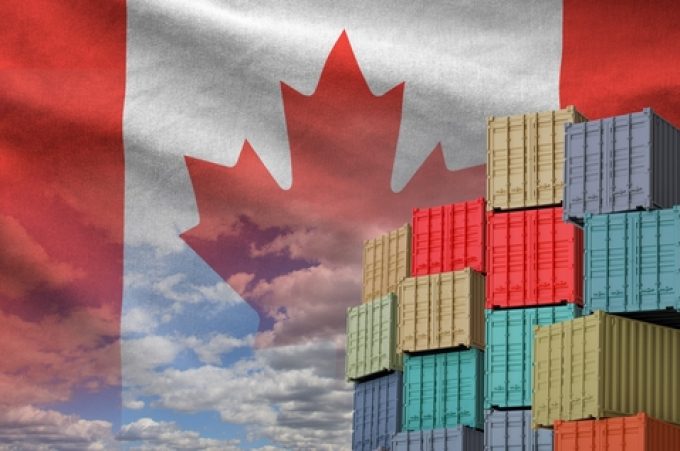Ripples from Trump tariff threat rocking boats in the neighbourhood
The prospect of Donald Trump back in the White House imposing heavy tariffs appears to ...
GXO: NEW PARTNERSHIPKNIN: MATCHING PREVIOUS LOWSEXPD: VALUE AND LEGAL RISKMAERSK: DOWN SHE GOESVW: PAY CUTFDX: INSIDER BUYXOM: THE PAIN IS FELTUPS: CLOSING DEALSGXO: LOOKING FOR VALUEXOM: LNG PARTNERSHIPXPO: UNDER PRESSUREDSV: GAUGING UPSIDEAAPL: 'NOT ENOUGH'AAPL: SMART RACELINE: NEW LOW AMZN: NEW INVESTMENT
GXO: NEW PARTNERSHIPKNIN: MATCHING PREVIOUS LOWSEXPD: VALUE AND LEGAL RISKMAERSK: DOWN SHE GOESVW: PAY CUTFDX: INSIDER BUYXOM: THE PAIN IS FELTUPS: CLOSING DEALSGXO: LOOKING FOR VALUEXOM: LNG PARTNERSHIPXPO: UNDER PRESSUREDSV: GAUGING UPSIDEAAPL: 'NOT ENOUGH'AAPL: SMART RACELINE: NEW LOW AMZN: NEW INVESTMENT

Canada’s labour minister, Steve MacKinnon, has ordered the Industrial Relations Board (IRB) to step in to end the strikes at ports on the east and west coasts.
Mr MacKinnon posted on X that he had directed the IRB to extend the collective bargaining agreements at the ports until new deals are agreed and impose “final and binding arbitration” on all the parties involved.
“Collective bargaining negotiations between the parties in the ports of British Columbia, Montreal and Quebec are at an impasse,” wrote the minister.
“The responsibility for these negotiations belongs to the parties alone, but the impacts are being borne by all Canadians. We simply cannot afford this uncertainty and instability at this moment. Work stoppages are significantly impacting our supply chains, jobs, and economy.”
Mr MacKinnon told media the strikes were impacting some C$1.3bn (US$932m) worth of goods on a daily basis.
Stressing that he believed it remained possible for the parties to reach a settlement that would “avoid layoffs and other carnage”, he nonetheless warned that “Canadians have a limited tolerance right now for economic self-harm”.
Despite being independent, the IRB is directed by Canada’s government and Mr MacKinnon said the board would act on his order within a few days.
Reuters reported that the International Longshore and Warehouse Union Local 514, representing dockers in British Columbia, would “fight this order in the courts” and would not forget “how employers and this federal Liberal government have attacked all labour”.
The move follows the Longshoremen’s Union CUPE Local 375 in Montreal rejecting the Maritime Employers Association’s “final offer” on Sunday. This included a cumulative salary increase of more than 20% over six years, retroactive to the beginning of 2024.
The MEA claimed it would bring dockers’ average compensation to more than C$200,000 a year.
Comment on this article